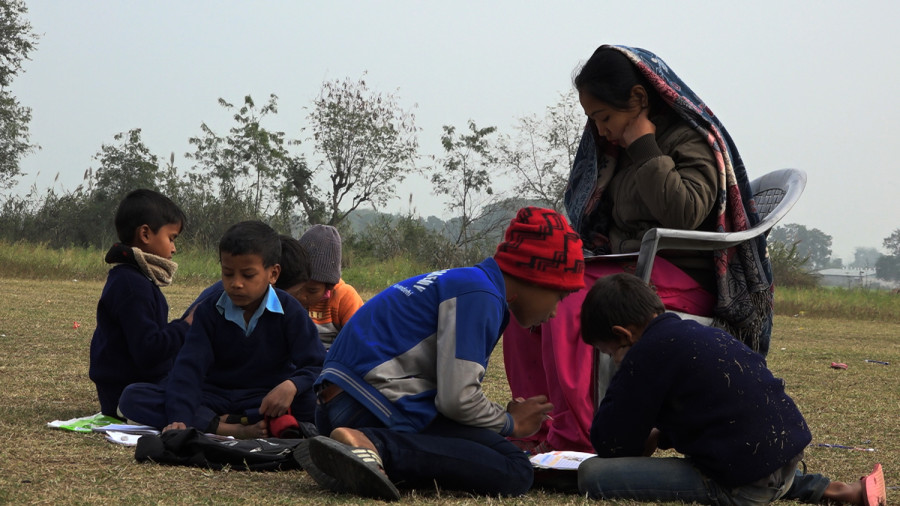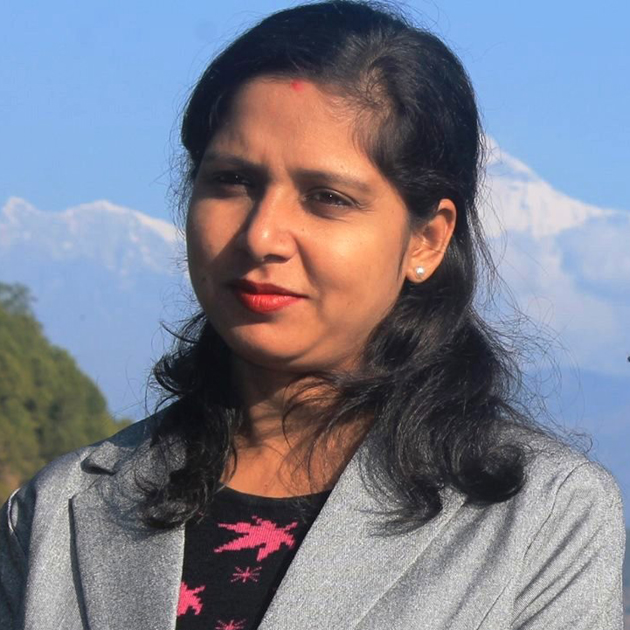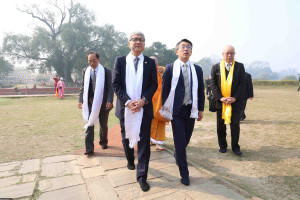Lumbini Province
Schools in Rupandehi local unit are not ready for mandatory English teaching
People need to let go of the mentality that English medium teaching produces talented students, education officer says.
Amrita Anmol
Farhan Ansari is a second-grader at Sirjana Basic School in Omsatiya Rural Municipality. The school incorporated English medium teaching a year ago. But Ansari cannot speak English, bar a few words.
“He can’t read his English textbooks and is getting weaker at studies by the day,” said Mohammed Ansari, Farhan’s father.
Bhojpuri is the mother tongue of a majority of students in the basic school. The students were just learning Nepali after they got enrolled in the school. But with the incorporation of regular English medium teaching, students have found themselves trapped in between three languages.
But the problem is not faced by students alone. The teachers at the school, habituated in teaching in Nepali for years, are finding it hard to teach their pupils properly. “For many of the teachers, English is an uncomfortable language,” said Rama Chaudhary, a teacher at the school. “And when that is the condition of the teachers, what could one ask from the students?”
Chaudhary said that the locals prefer sending their children to English medium schools. “For them, English language is a symbol of class,” said Chaudhary. “The school complied and this is where we are now.”
Omsatiya Rural Municipality has 15 public schools, all of which adopted English medium teaching from the fiscal year 2018/19. Currently, the schools provide English medium teaching to students up to grade two.
Hariprasad Pokhrel, education officer at the rural municipality, admitted that the teachings at the local unit’s public schools have not been up to the mark.
“The new step was taken without making provisions for trained English medium teachers,” he said, referring to it as the root of the problem. “The teachers themselves have a hard time teaching in English. The move has been counterproductive: we thought it would enhance the quality of education but what happened is just the opposite.”
The rural municipality provides free course books to students up to grade two and has hired 20 teachers to teach English. And the local unit has spent over Rs6 million to train the teachers.
Heera Kebat, chair of the local unit, said that his office started English medium teaching since English is an international language and learning it would help students in the long run.
“We will now find ways to improve the quality of English education,” Kebat said.
But not everybody is convinced by Kebat’s reasoning.
“People need to let go of the mentality that English medium teaching would produce talented students,” said Haribahadur Bista, education officer at the provincial directive of education and social development. “Primary level education should be provided in one’s mother tongue. If not, there’s Nepali, the country’s most-spoken language. It’s not necessary to force English down the students’ throats.”




 9.51°C Kathmandu
9.51°C Kathmandu















